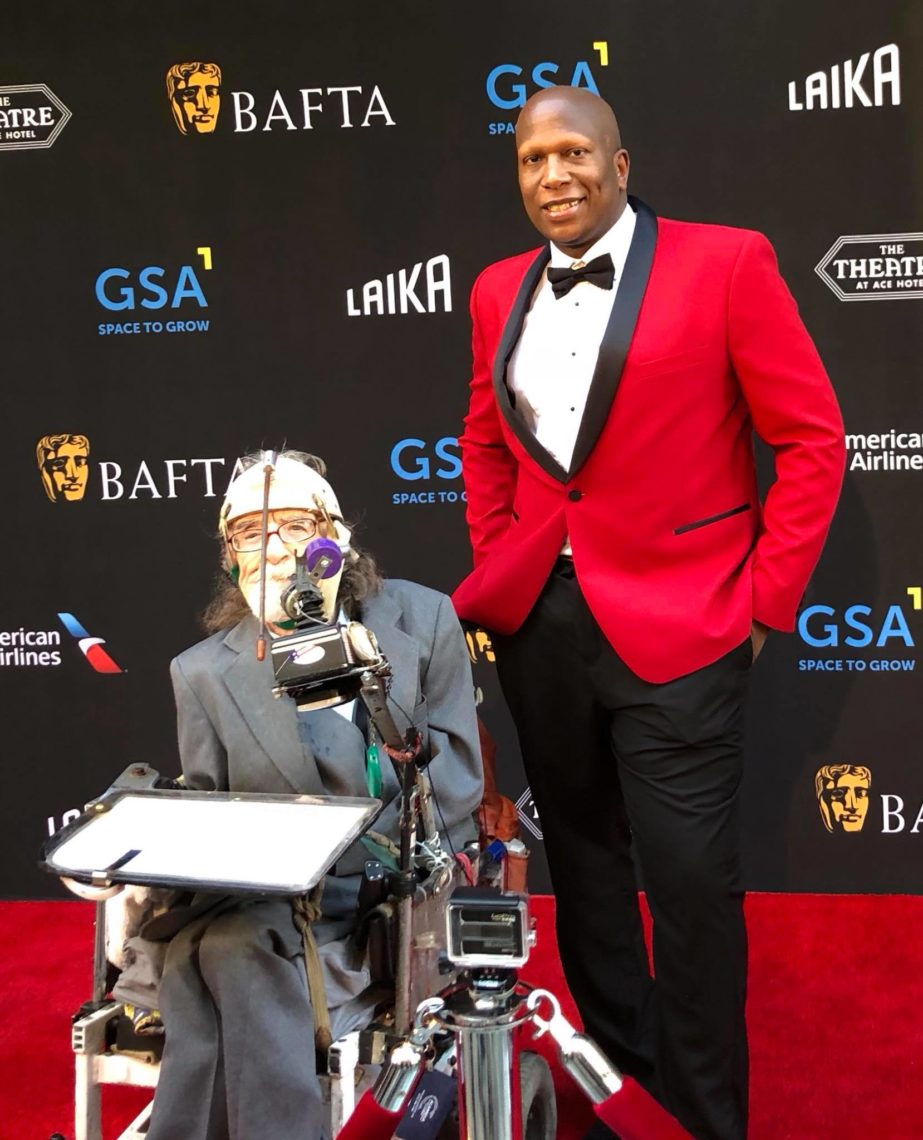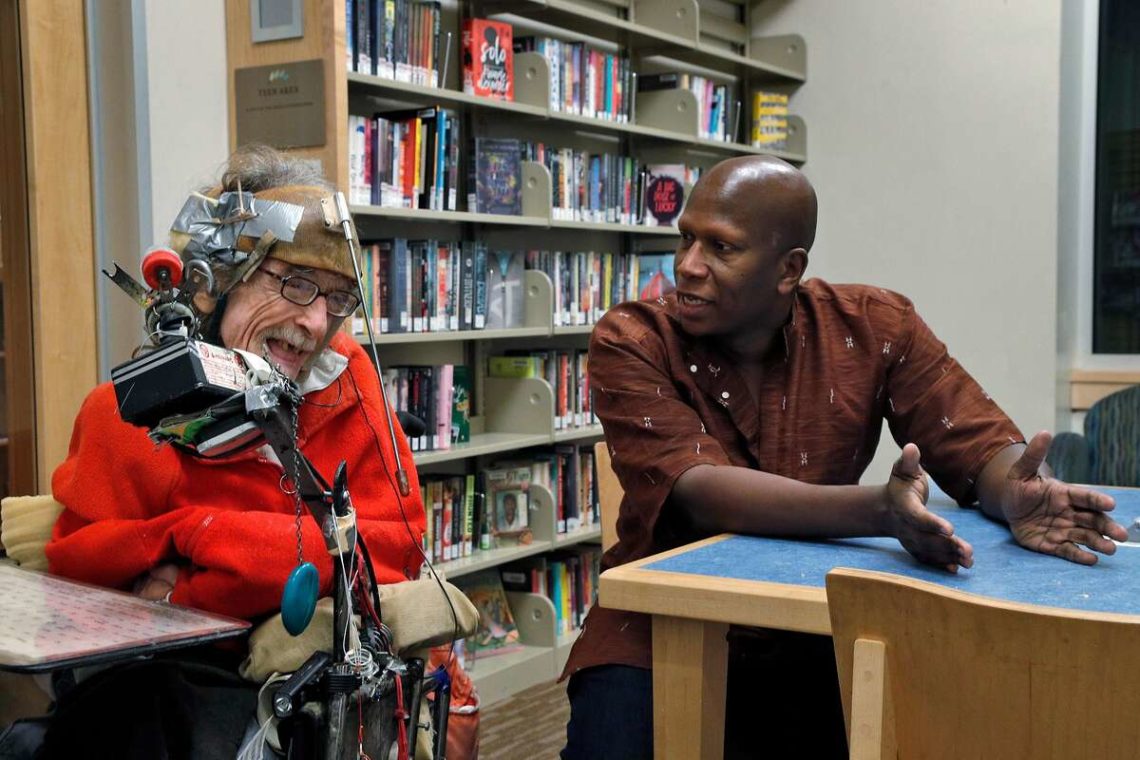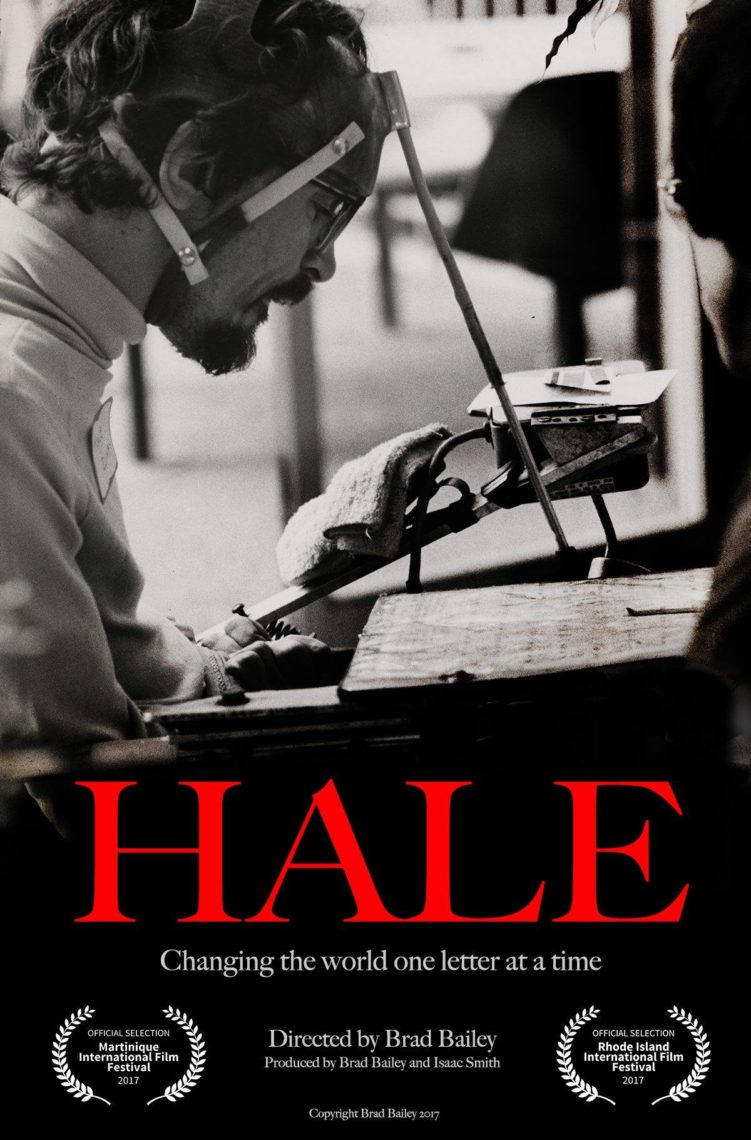Berkeley-based disability rights pioneer Hale Zukas died on November 30th in Berkeley, California. He was 79 years old.
Born with cerebral palsy, which significantly impaired his mobility and speech, doctors advised his parents to put him in an institution. Instead, they facilitated a full, productive life for him.

Hale Zukas and Brad Bailey at the 2018 BAFTA Awards ceremony in Los Angeles.
His extraordinary life was celebrated in “Hale,” a documentary short produced as Brad Bailey’s (‘17) master’s project co-produced by Isaac Smith (‘17) under the direction of Lecturer Bob Calo. The film won the 2017 Student Academy Award for best documentary, screened at the 21st annual American Pavilion Emerging Filmmaker Showcase at the Cannes Film Festival and was shortlisted for The British Academy of Film and Television Arts (BAFTA) Student Film Awards.
Zukas was a familiar presence at School events over many years and traveled through life in a motorized wheelchair. Most people could not understand his speech. Communicating only through a pointer attached to his helmet to operate his wheelchair and also spell words on a word/letter board, few knew he was one of the country’s great disability rights activists. Bailey, whose own father was disabled after a car accident, changed all that.
Graduating with honors from UC Berkeley (‘71) where he majored in mathematics and minored in Russian, Zukas began his life work as an advocate for needed services and the elimination of architectural and transportation barriers in communities locally and nationally. In 1970, he effectively lobbied for California’s In-Home Supportive Services (IHSS) Program, the first consumer-directed program to provide attendants in the home to people who needed them. This program has since become partially Medicaid-funded and a model for the nation.

Hale and Brad discussing the film for a story in the San Francisco Chronicle.
In 1973, when there were protests for the ratification of section 504 of the Rehabilitation Act, prohibiting discrimination on the basis of disability, Zukas was one of the leaders of the movement. He participated in the 20-day sit-in at the federal building in San Francisco, and was one of the activists from the Bay Area who successfully lobbied the Carter Administration to release its regulations.
 An engineer at heart, Zukas designed the first curb cuts in Berkeley and convinced the Bay Area Rapid Transit (BART) system to become fully accessible. He co-founded BART’s accessibility advisory group in 1975 and even designed the buttons for inside BART elevators so that they could easily be reached by wheelchair users.
An engineer at heart, Zukas designed the first curb cuts in Berkeley and convinced the Bay Area Rapid Transit (BART) system to become fully accessible. He co-founded BART’s accessibility advisory group in 1975 and even designed the buttons for inside BART elevators so that they could easily be reached by wheelchair users.
In 2012, Zukas was honored by BART for forty years of work and advocacy for accessible public transportation. The disability community named the passageway between BART and the Ed Roberts Campus after Zukas. A plaque was placed there in his honor.
“Hale was a light, a beacon of pure, raw energy,” Bailey said. “There are 8 billion people on this planet, and Hale was one of a kind. He left an indelible impact on the structure of our society, and that will be felt forever.”
“Disability reporting helps us better understand ableism in our society and the importance of disability inclusion, as well as change-makers who have worked to dismantle ableism,” said Julia Métraux (’23) head of the Disabled Journalists Association, Berkeley Journalism Chapter. “Brad Bailey’s documentary on Hale Zukas did just that, and also highlighted the importance of centering disabled persons, instead of just featuring non-disabled voices.”
A public memorial service is being planned by his family over the next few months.
